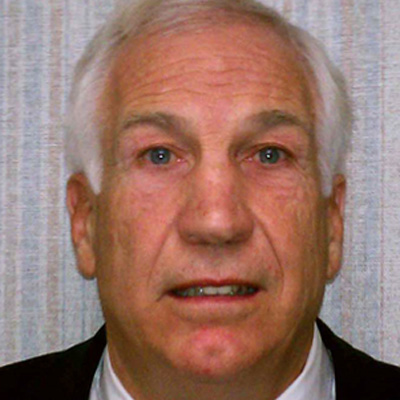
The Penn State scandal has sent ripples through the world of college sports as child molestation allegations against assistant football coach Jerry Sandusky were recently made public.
The accusations have lead to the subsequent and rightful dismissal of several prominent figures at Penn State University, including legendary Penn State football head coach Joe Paterno, for their involvement in the scandal.
The calls for Paterno’s dismissal grew louder across the nation as many condemned his inaction over the years despite his professed knowledge of Sandusky’s dubious behaviors. However, news of the coach’s dismissal still came as a shock to the entire staff and student body at Penn State.
On Nov. 9, after Paterno’s dismissal was announced to the media, hundreds of students rioted in the streets surrounding the Penn State campus. They allowed themselves to be consumed by the severe distress generated by the dishonorable removal of their beloved icon from his former position of glory.
Coach Paterno deserved to be fired, as did each and every official who was aware of Sandusky’s actions. They enabled Sandusky through their inaction and silence, failing to fulfill their greater moral obligations in an attempt to preserve the prestige of Penn State’s once-honorable football program.
Their decision was a calculated one. They chose to preserve the public’s perception of Penn State’s football program as one of the beacons of integrity in the college football world, and yet in doing so have sold out their moral virtue by choosing to protect the team over the wellbeing of innocent children.
The greatest indictment of their actions is the notion that, over the course of the past 15 years, these individuals ignored the prevalence of situations in which Sandusky had reportedly been involved or accused of acting inappropriately around children.
The earliest documented report of possible abuse was in 1995, 16 years ago.
In the 16 years that followed, countless children were subjected to Sandusky’s malicious intentions. Numerous opportunities arose, yet none of the Penn State officials decided to take action. In 1998, when the first victim spoke up about his encounter with Sandusky, action should have been taken to completely end Sandusky’s ties with the organization and to begin the legal process of putting him on trial for child molestation and rape.
Some say hindsight is 20/20, yet the ample amount of opportunities that arose to indict Sandusky refutes this argument. At some point, someone should have taken action. Whether it was Coach Paterno, a Penn State official or assistant coach McCreary, the blame falls on each of them equally for their inaction and refusal to see what was staring them right in the eye: an alleged child molester.
The greatest amount of criticism should fall on McCreary’s father, whom McCreary called upon to witness Sandusky committing a heinous crime in the showers of a Penn State athletic facility. He told his son to take the information to Coach Paterno, not the police. He adamantly told his son to not involve the police.
A child had been sexually assaulted in front of him, yet instead of calling the police or taking action to stop the assault, McCreary left the facility. Whether it was shock or the misguided advice of his father that led McCreary to depart, the fact of the matter is that he left that child with Sandusky.
Another victim lost to inaction.
The Penn State scandal is a story about betrayal of moral action in favor of personal gain, characterized by men who chose a school’s reputation over protecting the innocence of the victims.

